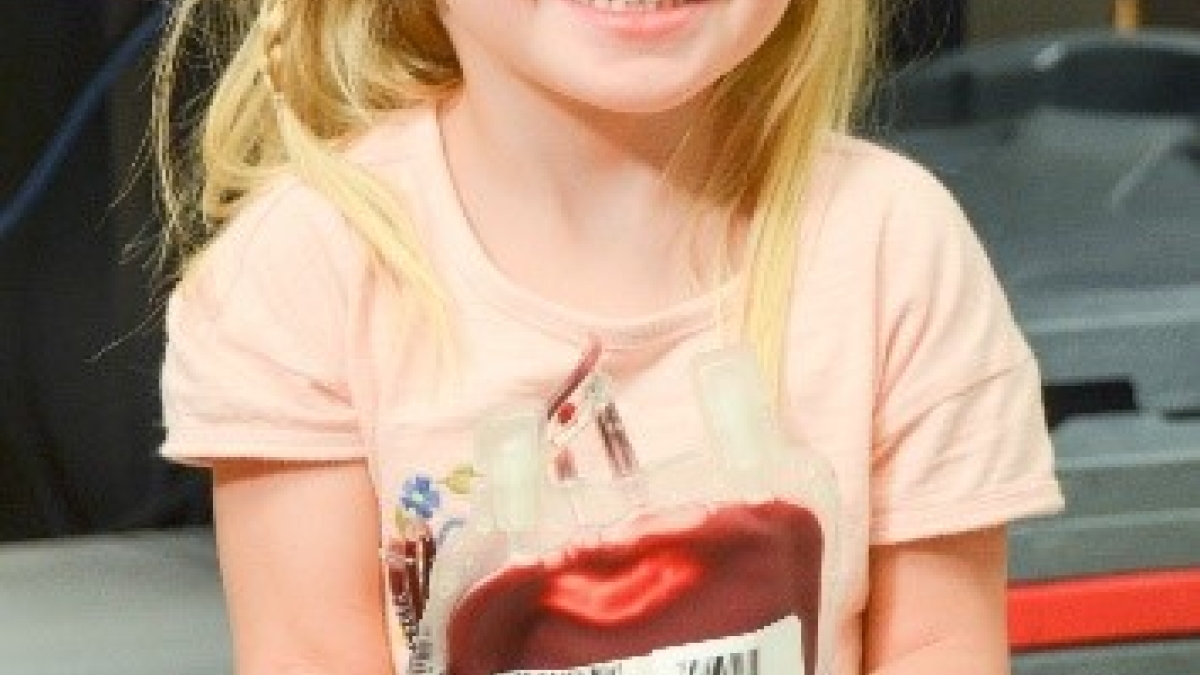ASU Cultural Affairs, Desert Financial present blood drive on May 31

Blood donors help Arizona kids like 4-year-old Adelyn who received her 66th blood transfusion on May 6.
Every day in hospitals across the country, millions of patients depend on lifesaving blood donations to survive and thrive. But in the wake of the COVID-19 pandemic, hundreds of blood drives were canceled due to school and business closures, causing a significant drop in blood donations. With elective surgeries resuming in Arizona hospitals, blood needs are on the rise.
Healthy, eligible donors are invited to the Desert Financial Arena Community Blood Drive from 8 a.m. to 2 p.m. on Sunday, May 31, at Desert Financial Arena on the Arizona State University campus in Tempe.
Participants are encouraged to arrive 15 minutes early. The first 350 donors will receive an ASU/Desert Financial T-shirt in appreciation for giving blood at this crucial time.
Blood drive details, maps and registration
Vitalant, Arizona’s largest nonprofit community blood provider, has partnered to host the blood drive. While there is no inherent risk of contracting coronavirus while donating blood, Vitalant is following current guidelines from the Centers for Disease Control (CDC). Extra precautions will be implemented with regard to social distancing, health screening and sanitation to protect staff and donors.
Donors will be invited to wait in their cars or other comfortable and convenient locations, and alerted just prior to their appointments via text. Masks will be required during donations and provided by Desert Financial.
Learn more about additional precautions taken during the blood drive
- Temperatures will be taken at registration; those higher than 99.5 Fahrenheit are not eligible to donate.
- Waiting areas will accommodate social distancing measures of 6 feet apart.
- Prepackaged, single-use servings of snacks/beverages will be available.
- Donors are required to wear masks; Desert Financial will supply masks for one-time use.
- Masks and gloves will be worn by Vitalant staff.
- Donor-touched areas will be sanitized frequently and after every collection.
- Donations will be taken using sterile, one-time use collection sets.
- Donors' arms will be swabbed with an antiseptic for 30 seconds.
- Children and other visitors are discouraged from accompanying donors.
“Over the past few months, we’ve been reminded just how much we need each other. We’ve been encouraged by the many stories of generosity and acts of kindness across our community, and we encourage those in good health to step up in a big way. It’s safe, it’s easy, and nothing feels better than giving back,” said Jeff Meshey, president and CEO at Desert Financial.
Blood donors help Arizona kids like 4-year-old Adelyn who received her 66th blood transfusion on May 6. She was born with Diamond-Blackfan anemia, a rare disorder that prevents her body from producing red blood cells. Every three to four weeks, she relies on the generosity of blood donors to keep her alive — a need that is expected to continue the rest of her life.
“Adelyn has taught us the importance of donating blood,” said her mother, Kami. “We are forever thankful to each and every blood donor.”
“ASU wants to open its doors for this important life-saving opportunity,” said Colleen Jennings-Roggensack, ASU vice president for Cultural Affairs. “Connecting the community during a blood a drive is a way for people to give in a powerful way and impact us all.”
More Health and medicine
New Indigenous health dashboard offers robust database for scholars
By Nicole Greason and Kimberly Linn A team at Arizona State University’s College of Health Solutions and …
College of Health Solutions program doing its part during Salute to Service
It wasn’t always easy for Marine veteran Chuck Hale when he first returned to civilian life. But he’ll never forget the help he…

What makes human culture unique?
Why is human culture — the shared body of knowledge passed down across generations — so much more powerful than animal cultures?“…